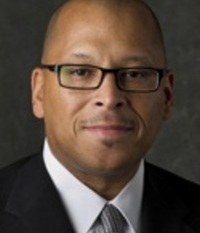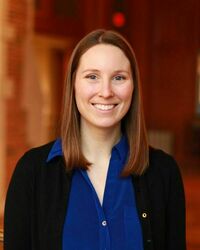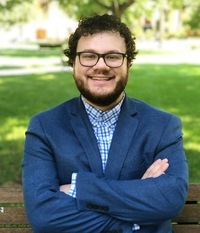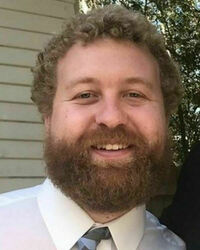Cooperative Election Study
Rooney Center faculty and graduate students are using the Cooperative Election Study, a national survey, to conduct research and answer important questions in the field of American Politics.
The Research

Darren Davis: “Racial Resentment, ‘Belief in a Just World,’ and Racial Enabling”
A great deal of research shows that individuals are willing to back off from their expressions of racial prejudice when confronted. If people are willing to alter their racial beliefs under social pressures then racial prejudice may not be as intractable or inflexible as originally conceived. Yet, the motivation to behaviorally confront incidents of racial prejudice is likely difficult given the costs of engaging others knowing disagreement is the starting point. Little attention has been devoted to examining the willingness of individuals to object or speak-out against racial prejudice, which is necessary in order for social change. We conceptualize the tendency to not confront incidents of racial prejudice as a form of racial enabling. Using a series of survey-based items to capture racial enabling, we analyze how often and why people speaking out against racial prejudice.

Erin Rossiter: “Describing Americans’ Experiences with Out-Party Members in their Daily Lives”
Despite the fear that Americans are socially and geographically polarized along party lines, we are far from a point where society is perfectly siloed off into partisan camps. Under what conditions do partisans still interact with opposing party members in their daily lives? Do these interactions serve any role in ameliorating or exacerbating the well-documented animosity partisan have opposing party members? I will shed light on these questions by leveraging CES survey data to understand how Americans perceive and experience interactions with opposing party members in their daily lives.

Matthew Hall: “From the Workplace to the Ballot Box”
For decades, Americans have become increasingly isolated from their friends, family, and neighbors. As a result, Americans have fewer opportunities to interact with those who hold differing political views, with one notable exception: interactions in the workplace. In contrast to other venues, political discussions at work are quite common, and most Americans say that workplace political discussions have become more common in the last four years. Consequently, these workplace conversations present a unique opportunity for cross-party conversations and understanding. In this research project, I will test whether face-to-face interactions with coworkers are associated with decreased out-party animosity.

Wayde Marsh: “No One Mourns the Wicked: Partisan Hatred Persisting through Tragedy”
Who do we blame when bad things happen? Has division in American society made us less sympathetic to victims of tragedies? In previous trying times (e.g. 9/11 and Columbine), Americans rallied together to support victims and seek government solutions. In a highly polarized era, however, we have witnessed further division rather than unity. My research examines who Americans blame and sympathize with when someone has tragically died of Covid and from a police shooting. In particular, this research investigates how people blame and sympathize with the victim and government based on the victim's race-ethnicity and partisanship.


Wayde Marsh & Levi Allen: “Candidate Cross-Pressuring through Non-Political Identity Signals”
According to recent reports, Americans are so divided along partisan lines that Democrats and Republicans drive different cars, go to different restaurants and grocery stores, watch different sports, and even wear different types of clothing. But, there are many politicians who challenge this idea by in many ways looking and acting like a member of the opposite party. Do voters simply vote based on party? Or, even in a highly polarized time, do voters look beyond party and vote for a candidate who they identify with outside of politics? Our research tests voters' preferences for candidates when they may or may not share partisanship but may go to the same restaurant or enjoy the same activities. So, who would you choose: the Chevy-driving, Chick-fil-a eating, county fair-attending candidate or the Prius-driving, Starbucks-drinking, arts festival-attending candidate?

Levi Allen: “Do they Practice what they Preach? Public Perceptions of Evangelicalism in the United States”
Do Americans view evangelical/born-again Christians in a positive light characterized by a unique faith tradition driven by their religious principles, or more cynically, believing that they are driven by the pursuit of their political goals? I ask respondents how much they agree with different characterizations of evangelical Christians and test what factors drive these evaluations. This research has implications for the stability of American democracy and the separation of church and state. Speaking of state religion in Europe in the 19thCentury, Tocqueville said “Christianity allowed itself to be intimately united with the powers of earth… I have always thought that if sometimes they [religious followers] could temporarily serve the interests of political power, they always sooner or later become fatal to the Church.”

Abigail Mancinelli: “Do Publicly Financed Legislatures Look More Like Their Constituents?”
This research explores whether more female candidates run for and win state legislative office with the help of public financing. Understanding the mechanisms which may close the gender representation gap in state legislatures is key to achieving political equality. Money presents a prime source of inequality in the ability to run for office, especially for women, who face systematic financial challenges in political campaigns. As a result, women candidates stand to gain the most from public financing, a policy which levels the financial playing field and supplies their campaign with additional confidence by increasing its viability.

Spencer Lindsay: “Ideals or Identity? The Role of Ideology and Outgroup Attitudes in Determining Vote Choice”
When choosing who to vote for, do voters rely more on their ideology or their racial attitudes? Using an original experiment that presents respondents with a fictional candidate, we suspect that when voters' ideology and level of prejudice work in concert with one another, they will exhibit high levels of support for that candidate. But when those two things work against one another, we believe that prejudice will win out. In other words, conservatives may be more willing to support a more prejudiced liberal and liberals may be more inclined to support a less prejudiced conservative. This research allows us to better understand how Americans make decisions at the ballot box in this racialized era of politics.